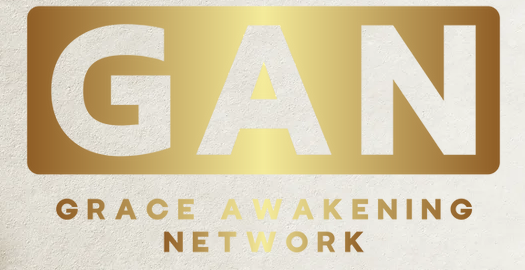Ten years ago to the day, I published the piece “Ex-Batt Christians”, which was what I still consider to be one of the most important and meaningful essays I have ever written. It still applies today, because a) many Christians (including most Evangelicals) are still trapped inside the cage of religion[1], and b) many people are finding their way out of that cage and are unsure of what to do next, or even if it’s ‘safe’ to be outside the cage.
This piece was almost a parable, and can still be read as such today. Some of the minor details have changed (for example, we no longer have four chickens; just one now and she, of course, wasn’t one of the four mentioned in the essay[2]) but still the lessons are just as applicable now as they were then.
Here we go, then. Enjoy!
My family has a flock of rescued chickens. At present, there’s four birds in the flock, and most of them are ‘retired’ caged chickens.
Caged chickens are what used to be referred to as ‘battery hens’; hens that right from the day they were hatched have never known freedom. From before the time they begin laying, until they are about a year old, they spend all their time in a cage. Then they are either sent off for slaughter or they are rehomed as ‘ex-battery’ hens, or ‘ex-batt’ for short. Three of our girls are ex-batt hens; the fourth was a stray whom we adopted.
Now, about six weeks ago, our two newest hens arrived. Apart from being all bedraggled and nearly bald (we thought they actually looked ‘oven-ready!’), they simply didn’t know what to do with their new freedom. They spent the first couple of days huddled together in the (open) chicken cage, while the hens we already had were roaming about their large pen, pecking at this and that like chickens do. Then, after a couple of days, they dared to come out of the cage a couple of feet; after that, they came right out but hid in the bushes for most of the day. All the time, they felt they had to be near the ‘safety’ of their cage, so they could bolt back to their place of security. Only after about four weeks with us did they realise that they had choices, they had freedom, and it was up to them how they spent their day. Stay in the chicken coop? No problem. Sit in the shade? Mmmhmm, and have a dust-bath while you’re there. Want to wander round the chicken pen and explore? Go right ahead, it’s perfectly safe. And occasionally they even get let out of the pen and into the whole garden, on what we call ‘rampage’. And they love the freedom!
I’m sure you can see the analogy. I feel that there are many Christians who are still in the chicken coop. They have been set free from the kingdom of darkness, but they are not enjoying the ‘glorious freedom of the Children of God’ (Romans 8:21)
Much of the time, they find it hard to emerge from the ‘safety’ of the coop. Sure, it’s safe in there, but it’s not freedom. Even once they emerge, they are ready at a moment’s notice to bolt back in there.
Jesus was castigated by the religious authorities of His day, for associating with ‘sinners’. He was admonished most severely for partying and having a great time with His friends. Mark 2:18 – “Now John’s disciples and the Pharisees were fasting. Some people came and asked Jesus, “How is it that John’s disciples and the disciples of the Pharisees are fasting, but yours are not?” These people – even John the Baptist’s disciples, who were effectively part of a ‘new’ movement – felt that religious observance meant being dull, dry, and having a straight face all the time. No fun is allowed, folks, and certainly no laughing!
But Jesus was having none of that. When the Bridegroom (Jesus) is with us, we don’t need to ‘do’ all these religious rules and observances. We just need to live our lives in the glorious freedom of the Children of God. We can live lavishly, we can live in extravagant, outrageous freedom – freedom that will appear to the ‘religious’ (and those who think they know how ‘religious’ people should behave) to be outrageous. “What? These people believe in God and they’re happy??“
Like when I fly, my home base airfield is near a huge reservoir lake with a dam at one end. So, of course, we do low-level ‘Dambuster’ runs over it. A shallow dive, picking up speed, race across the water at high speed only 200 feet up….and then call ‘bombs away’ and a sharp, high-‘g‘ pull-up into the climb away. Tremendous fun, perfectly legal and perfectly safe. But people hear the stories of that sort of thing and they say, ‘You do, like, what??‘ And to be perfectly honest, it takes a good few days for the grin to disappear from my face after a Dambuster run…. but you see the thing is that we enjoy it. Really enjoy it. It’s part of our freedom. ‘Pilots shouldn’t do things like that’ is only said by those who have not experienced the freedom of flight – and who have not spent all those years of hard training; British pilot training is the most thorough in the world of civilian aviation and we produce the safest private pilots in the world. And yet still we do Dambuster runs, because it’s perfectly safe – because we have trained for it. It’s what we are equipped and free to do.
And so it is with the things of faith, the things of God. Those who live in freedom appear to those on the outside to be completely irreligious. They laugh and joke. They appear to be filled with an inexpressible joy. They party (in whatever way suits them), they dance, they’re free. They associate with all different types of people, including those who society sees as outcasts. They do kind things. They do daft things. And those outside – both believer and non-believer alike – look in and say, ‘No way they’re Christians. They aren’t behaving at all like a Christian should behave’. ‘How can you call yourself a Christian and still do that?’ Y’see, they just don’t ‘get’ it. The thing is that most of these unwritten expectations of behaviour are completely founded in others’ opinions and not in Scripture. Even if they were founded in Scripture, it’s not there to restrict us; rather to set us free.
People of faith who discover this new-found freedom also sometimes feel insecure in that freedom. They are emerging from the chrysalis of rules and regulations, of unwritten behavioural ‘standards’, and are exploring the pen near the cage. They’ re ready to scuttle back into the cage if they feel too unsafe. But you know, God made us for freedom, and ‘it is for freedom that Christ has set us free’ (Gal 5:1). It’s what we were made for! But don’t worry if at first you feel insecure. You no longer have the ‘rules’ as a backstop. But you don’t need rules anymore. Heb 10:16 – “I will write My laws upon their hearts”. Holy Spirit is your backstop and He will not let you fall. In any event, your salvation is secure even if/when you do make mistakes. This is the freedom we possess! Once saved, always saved. Click here for my blog posting on that truth.
So, can you see then that these ‘ex-batt Christians’ really need to come out of their cage and enjoy the freedom of the pen. That’s what they were rescued for! That’s what they were adopted for!
Life in all its fulness! Come on out of the cage and into the pen – or better yet, out into the garden. The freedom out here is wonderful!

Hope that helps, with anything that’s on your mind or your spirit 🙂
Grace and peace to you.
Footnotes
| ⇧1 | Religion, in the sense of trying to ‘do’ things in order to please God, in order to appease any ‘wrath’ He may happen to be feeling towards them. Essentially, it’s legalism cloaked under a thin veneer of a completely misunderstood and misrepresented ‘grace’. Wanting to please God because you love Him is one thing; trying to please Him in order to appease Him, and thereby avert anything nasty that you fear He might do to you, is another thing entirely. |
|---|---|
| ⇧2 | Chickens generally live for about five years; the oldest one we had, Florence, was eight when she died and she was one of the four mentioned in the essay. |











